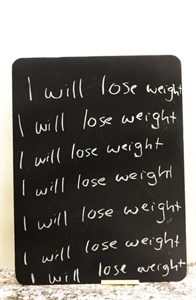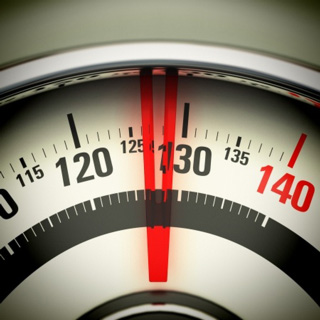5 Steps To Becoming A Flexible Dieter
You work very hard to lose fat. You know the basic principles and you uphold them: eat less, move more. You fit your workouts into a tight daily schedule and you pride yourself on your dietary discipline. But this strength and will power isn’t always to your advantage.
Why Rigid Diets Don’t Work
There are pretty much three reasons why rigid diets don’t work.
- You get tired of the rules and quit your plan before reaching your goals.
- You reach your goal and then you get tired of the rules and quit.
- You reach your goal and maintain your progress, but you’re so miserable that being lean isn’t worth it anymore. Then you either quit or go crazy.
If you put yourself on a diet you don’t enjoy, it is only a matter of time before you give up.
1. Make as few changes to your diet as possible to lose fat.
You have to make some changes if you want to lose fat but you don’t have to necessarily make dramatic, wide ranging changes. Make as few changes as possible.
You have to eat fewer calories than you are spending — you will not lose fat without doing this. A great first step is to just eat less of what you are already eating. If you eat pizza every day, eat one less slice. If that isn’t working, eat two fewer slices. Start with something manageable.
2. Eat foods that keep you full, nourished, and happy.
The majority of your diet should come from whole, nutrient dense, plants and animals.
Once you get yourself in the habit of eating these whole foods, you can be more flexible with your other food choices.
If you are hungry all the time and not meeting your micronutrient needs, you need to work on fixing that before you can even think about cheat days or the 80/20 rule.
You should enjoy all of the food you eat, not just the ‘junk.’ If you don’t, you will become dependent on the junk. There is no reason why you have to eat the same foods or macronutrient combinations forever. Especially if you aren’t enjoying it.
Change your diet to fill it with foods you enjoy. As long as you are staying within the calorie totals for your goals, you’ll continue to lose fat or maintain your fat without feeling deprived.
3. Avoid food avoidance
There is no such thing as healthy or unhealthy food. There is just food.
When you view foods as ‘bad,’ you’ll find yourself craving them more. We want what we can’t have. And avoiding foods, robs you of the ability to learn how to enjoy these foods in moderation. Avoiding foods can be distracting. It focuses you on a minor detail instead of giving you the overall picture. It can also make you miserable. If you are constantly focused on what you can’t eat, how are you ever going to enjoy yourself?
This isn’t to say that you shouldn’t put restrictions on yourself, it just means you should be cautious and realistic about it.
Use restrictions to provide your diet with structure — as long as it works. Take low carb diets, for example. Many people are able reduce the amount of carbs they eat without feeling hungry. The problems come when you place too many restrictions and never allow yourself a break. If you’re eating the same foods every single day in order to not eat others, you’re probably setting yourself up for disaster.
4. Make sensible indulgences
No matter what diet you have adopted, it isn’t a bad idea to allow yourself a few indulgences. Here are some ways you can do that:
80/20 Rule
Eat about 80% of your calories from “healthy” foods and the rest from “less healthy” foods. This allows you to indulge but not go over the top and blow all your good work.
Free Meals
Have a meal that includes foods you wouldn’t normally eat.
Diet Breaks
Take several days or weeks where you allow yourself to eat the foods you wouldn’t ordinarily. Stop counting your calories and your macronutrients. Since the risk of gaining fat is usually higher the longer you stop dieting, you may still want to count grams of protein and fat or be slightly more vigilant about portions in some cases.
Cheat Days
In most instances, cheat days are controlled binges. They really are not the ‘best’ option here as they can lead to binging on junk and the idea that eating foods you enjoy is ‘cheating’ on your diet is psychologically messed up. As mentioned before, your entire diet should be enjoyable and not set up in a way that makes you feel guilty for eating junk now and then.
5. Form lasting healthy eating habits
The most important part about becoming a flexible dieter is to be a sensible dieter in the first place. It is possible to eat massive amounts of junk food and stay lean, it all comes down to your activity level but this is not healthy and sustainable long term. This does not mean never having a cookie or some ice cream it just means that it can’t be your go to meal at every meal. Get yourself in the habit of preparing healthy, sensible meals including a moderate amount of junk now and then. Don’t get stuck swinging between the extremes of restriction and indulgence.
What do you do to stay lean AND happy on your diet? Share your thoughts with us.
-
Fat Burning Ready For 2011
I don’t know with regards to you but I plan to stuff myself s
-
Weight Loss - A Look At Raspberry Ketone Extract As A Weight-Loss Supplement
To lose weight, you need to burn more calories than you take in. Using
-
Get Ready for Bikini Season Part 2: The Exercise
We all know that diet only gets us so far when it comes to getting you
-
Diets For Fat Loss - Diet For Results - Learn How!
Diets For Fat Loss That Strip Fat Quickly! The most effective diets f
-
Best and Simple Exercises for Easy Weight Loss
There are plenty of options available around us for losing weight; how
-
Is Ten Minutes A Day Worth It For A New You?
You dont need to spend an hour or two in
- DON'T MISS
- Weight Loss and Goals
- Working From Home And Weight Gain Are They Relatives
- Those Wanting Fat Abolishment Buy Meratol Online
- How To Boost Your Metabolism And Shed Fat
- Weight Loss Myth? You Gain More Weight in Cold Weather
- Weight Loss Regime
- Weight Loss Pills Explained
- Atkins Grapefruit Diet
- Fantastic Ideas That Can Enhance Your Weight Loss
- 10 Tips to Beating Your Food Cravings




